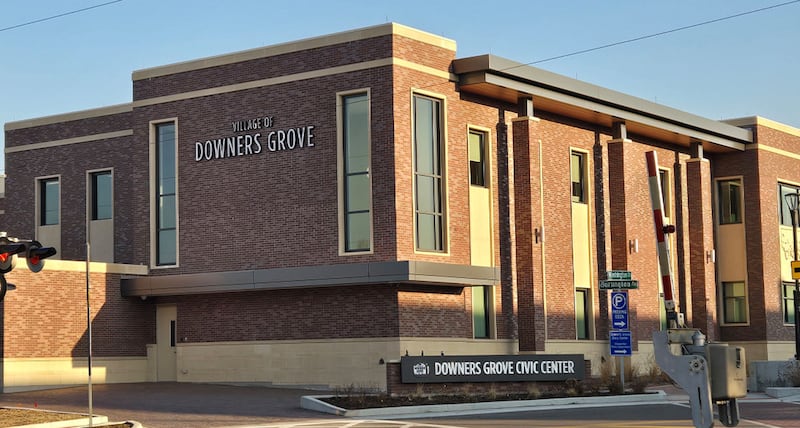Downers Grove Commissioner Chris Gilmartin’s deep dive into Village Council decisions made nearly a quarter of a century ago has put an end to the council’s months-long mayor pro tem debate.
Commissioners on Sept. 2 unanimously agreed to remove from the village code an ordinance regulating the selection of the mayor pro tem and instead follow state law.
The dispute dates back to May when the council rejected Mayor Bob Barnett’s appointment of Commissioner Martin Tully as mayor pro tem.
Barnett did not make a second appointment causing Gilmartin in August to propose a new process for appointing the mayor pro tem, including steps if the mayor’s first nomination was rejected.
Barnett called Gilmartin’s proposal politically motivated and supported by commissioners who were unhappy with Tully as his choice.
But none of that apparently matters now as Gilmartin on Tuesday dropped his proposal and the council agreed to follow state law, which calls for commissioners to choose the mayor pro tem.
Council members also agreed that they will select a mayor pro tem each time the mayor is absent. The change will take effect immediately.
“It does sound like the best option is to replace this proposed resolution and replace our current ordinance and simply point to state law, which would effectively remove the mayor’s nomination and removal clause and clearly supports and defines [that the] council elects the mayor pro tem,” Gilmartin said.
Gilmartin favored following state law after doing some research that indicated 2001 was when the Village Council granted the mayor the power to chose the mayor pro tem.
The reasons for the change are unclear but Gilmaartin has a theory.
“Why in 2001 did we go from a council election of the mayor pro tem to a mayor appointed council confirmation? This to me is the bigger question, and I would argue that it was a calculated move to give the mayor more power and to try to give this perception of mayoral deference,” Gilmartin said.
DuPage County Board member Brian Krajewski was Downers Grove mayor in 2001.
“The reason for this change appears to be undocumented,” Gilmartin said.
The change in 2001 called for the mayor pro tem to be be appointed to a two-year appointment. Five council votes were required to remove the mayor pro tem. However, the mayor pro tem could be unilaterally removed by the mayor, Gilmartin said.
“Clearly something went on behind the scenes that made this shift in an immense way,” Commissioner Leslie Sadowski-Fugitt said. “This is the exact thing I want to make sure we prevent moving forward.”
Gilmartin said he pushed for a change to the way the mayor pro tem is selected “to eliminate this misleading impression of mayoral deference that has been present for years.”
At the Aug. 12 council meeting, Tully argued that typically the mayor makes an appointment and the council goes along with the selection even though some members may not fully support the selection.
Gilmartin said Tully’s stance only reinforces mayoral deference and “that is not grounded in any law.”
“Subject to confirmation requires the council to vote ”yes" or “no” on that appointment. It is not just an affirmation or a formality and it does not imply deference," he said.
“I think there are many who have a misperception of what the role of the mayor is or more importantly the extent of the mayor’s power.”
Following state law “achieves what has been my main goal to make sure we are moving the village forward and are purveyors of good governance,” Gilmartin said.
“This is how outdated ideology is removed. When I bristle at the idea of how things have always been done, this is what I’ve been talking about,” he said. “It is important that power grab attempts like this get scrubbed from our code.”
Commissioner Mike Davenport, who supported Tully as mayor pro tem, said Gilmartin’s proposed changes would better define the pro tem selection process but “the possibility of unnecessary conflict and diversion from the important work that this board has to do would remain,” he said.
